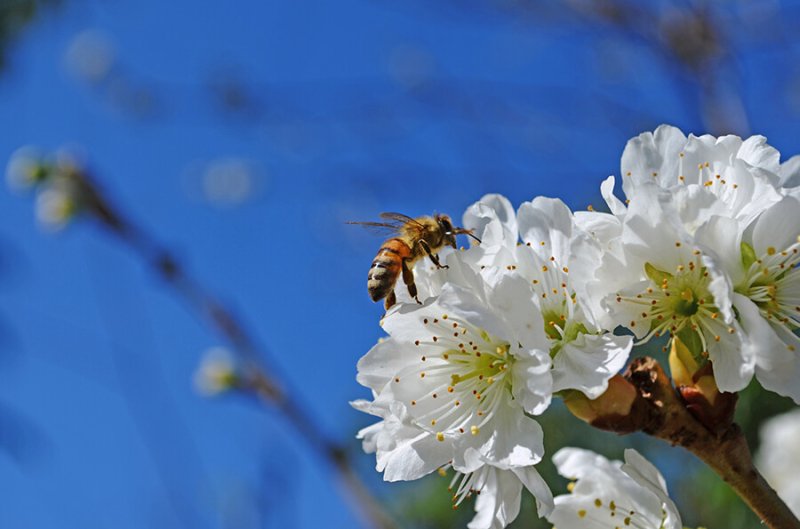A new study provides valuable insights into pollen abundance and diversity available to honeybee colonies employed in five major pollinator-dependent crops in Oregon and California, including California’s massive almond industry.
The study, a collaboration between OSU and Texas A&M University, found that almond, cherry and meadowfoam provide ample pollen to honeybees, but highbush blueberry and hybrid carrot seed crops may not. In addition, California almonds don’t provide as much pollen diversity as other crops, according to the findings, published in the Journal of Economic Entomology.
…
Well-nourished individuals in a honeybee colony are able to withstand the effects of other stressors such as parasites and insecticides, in addition to the long-distance transport of colonies known as “migratory management.” Bees are trucked across the county to pollinate various cropping systems — more than 1 million hives are transported to California each year just to pollinate almonds.
A diet low in pollen diversity hurts a colony’s defense system, which consequently increases disease susceptibility and pesticide sensitivity. During critical crop bloom periods, growers rent large numbers of honeybee colonies to pollinate their crops. Approximately 2.5 million commercially managed honeybee colonies are used for crop pollination in the United States every year.
Read full, original article: Researchers determine pollen abundance and diversity in pollinator-dependent crops































